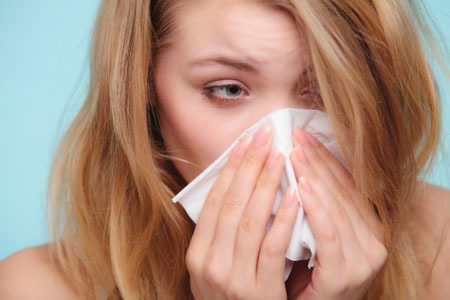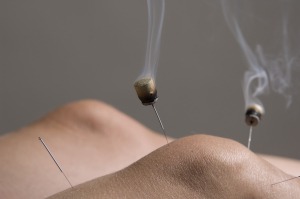Did you know that you are more likely to catch a ‘cold’ in windy weather? Read on to find out how to protect yourself from catching a cold and what to do if you get one.
 We are most vulnerable to catching colds when there is a change in temperature. To protect yourself from colds it is important to wrap up when going in and out of buildings, when returning to a cool climate from a ‘warm’ holiday or when the weather changes unseasonably (as it has done in the last week!).
We are most vulnerable to catching colds when there is a change in temperature. To protect yourself from colds it is important to wrap up when going in and out of buildings, when returning to a cool climate from a ‘warm’ holiday or when the weather changes unseasonably (as it has done in the last week!).
If you are going shopping in cold weather it’s a good idea to wear layers than can easily be undone and done up at the front to help you adjust your clothing between the heated atmosphere indoors and the cold weather outdoors. Put on a coat before you go out, rather than waiting until you feel cold. It only takes seconds for the wind and cold to overcome your defences.
We are much more vulnerable in ‘windy’ conditions, Our necks are particularly susceptible to the wind, not just windy weather but also to drafts or air blowing from fans or air-conditioning units indoors – so it’s important to cover your neck or wear a scarf in these situations. Avoid exercising in the wind as wind can easily ‘invade’ open pores in our skin making us more susceptible to catching colds.

If you catch a cold it is wise to take a break and rest, to allow your natural defences to build up. It’s really important to ensure you are fully recovered before returning to work, otherwise you may become susceptible to further infection.
What can you do about a ‘cold’?
Chinese Medicine recognises two kinds of colds:
Symptoms of a ‘wind-cold’ typically include a stuffy nose with clear white mucous, an itchy throat, sneezing, coughing, a slight headache at the base of the skull, feeling cold and possibly slightly achy joints.
A ‘wind-heat’ cold tends to be more severe and more ‘flu-like’. You may feel hot and feverish, sweaty, thirsty and have swollen tonsils or a sore throat. If you have a stuffy nose the mucous is more likely to be yellow in colour. Joint pains tend to be more severe.
If you have the ‘wind-cold’ type of cold, ginger tea can help you to eliminate the cold by encouraging sweating. It’s important to keep warm while your pores are opened to let out the cold. Ginger is naturally warming in nature and use of ginger in tea or cooking is great for anyone who tends to feel the cold.
Ginger Tea:
Put 3-5 slices of fresh ginger in a cup, fill the cup with boiling water and leave it to brew for about 5 minutes. Sweeten with a little honey as required.
In contrast to ginger, peppermint is naturally cooling in nature. So peppermint tea can be used to help clear a ‘wind-heat’ type of cold. Peppermint tea may also be beneficial if you suffer from mild heartburn or other ‘hot’ conditions, such as acid indigestion or hot flushes.
Peppermint tea:
Place a peppermint teabag in boiling water, add a little honey to taste and leave for 5 minutes.
In good health, our natural defences and immune system are strong. But stress and overwork weaken our defensive energy and leave us more vulnerable to catching colds. It is important to eat regularly, eat good quality warm foods and get enough rest to help protect ourselves from illness.

Seasonal Acupuncture
Chinese Medical theory holds that we are most vulnerable to illness at the changing of the seasons. You may have noticed that you are more likely to catch colds or that chronic health conditions such as arthritis worsen or reappear at certain times of the year. Some people choose to have acupuncture at specific times in the year to help boost their immune system and keep them well.
Research evidence suggests that acupuncture may help relieve cold symptoms by enhancing activity of our protective white blood cells and reducing inflammation, swelling and pain.

If you have a ‘cold’ condition, such as a cold or osteo arthritis of the knee, your acupuncturist may use moxibustion as well as acupuncture to help relieve your symptoms. Moxibustion involves warming the acupuncture needles with a herb (artemisia vulgaris) called moxa. It feels wonderful!
If you have any concerns about frequent colds, flu-like symptoms or any other aspect of your health, seek professional advice.



